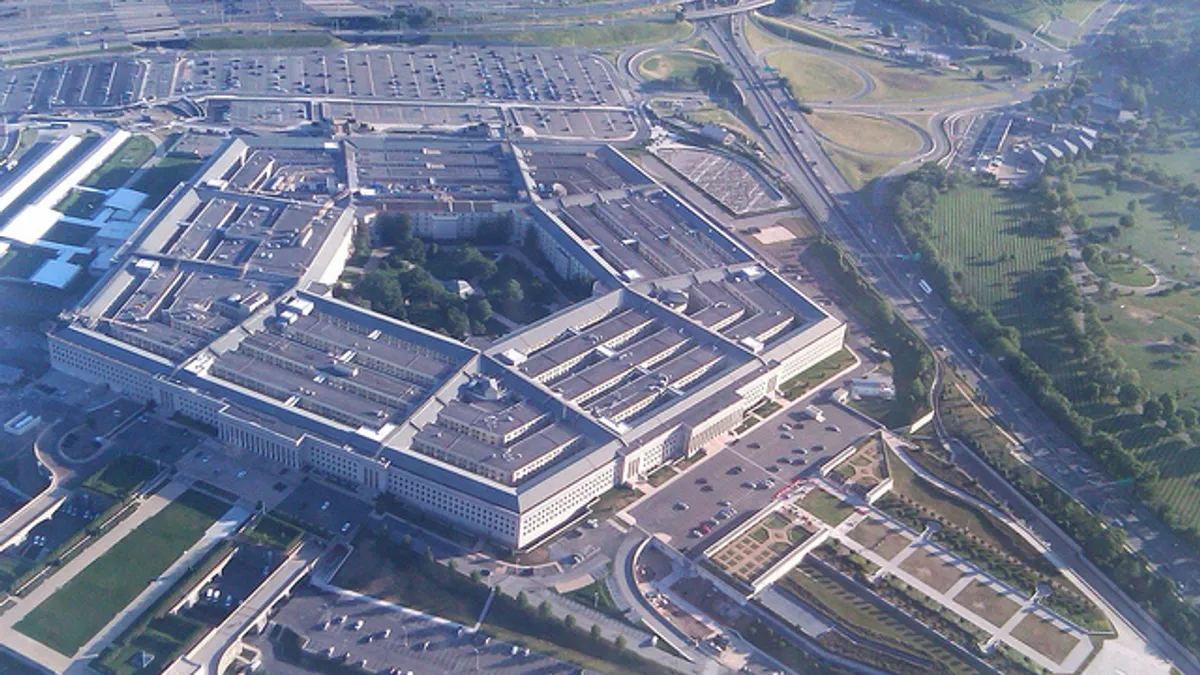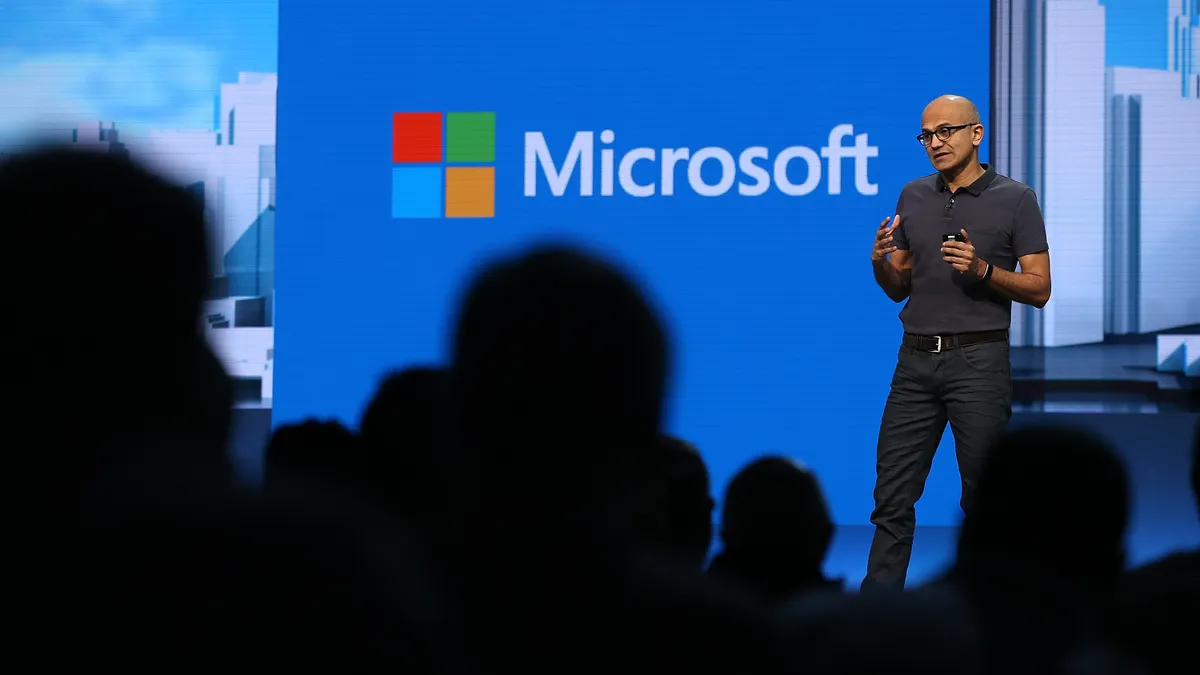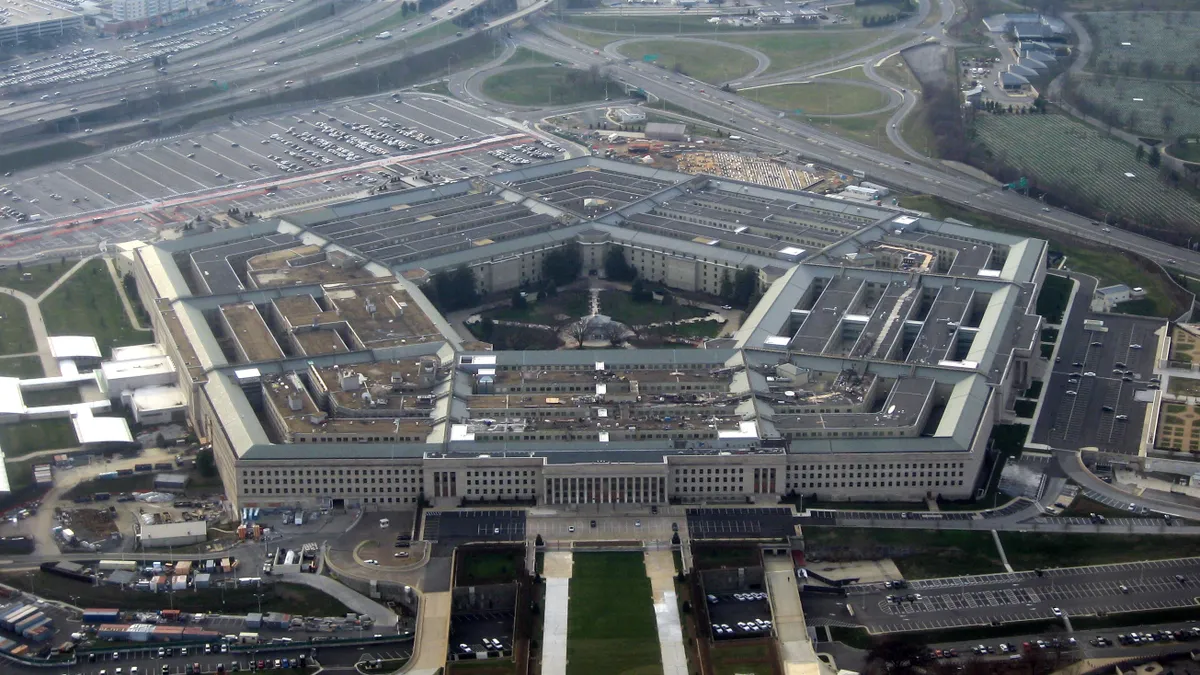Dive Brief:
-
Amazon Web Services filed a protest Monday in the U.S. Court of Federal Claims, decrying the Department of Defense's decision to award Microsoft the Joint Enterprise Defense Infrastructure (JEDI) cloud contract valued at $10 billion. The company called for a new reevaluation process and award decision. (Full protest embedded below.)
-
The DoD's evaluation process gave a "false sense of parity" between Microsoft and AWS, underrepresenting Amazon's "depth of experience, superior technology and proven record" in government contracts, the company said. The "errors" were driven by "improper pressure" and intervention from President Donald Trump who wanted to "screw Amazon" and hurt Amazon CEO Jeff Bezos, "his perceived political enemy," according to the protest.
-
In response to the protest, Microsoft said it had confidence in the DoD staff and "believe the facts will show they ran a detailed, thorough and fair process" in awarding the contract, according to a Microsoft spokesperson in a statement shared with CIO Dive. "We've worked hard to continually innovate over the past two years to create better, differentiated offerings for our customer."
Dive Insight:
Bid protest was expected with a contract this size, particularly with the contentious language and lawsuits leading up to the decision.
When AWS says the stakes are high in the filing, it is not speaking to the technical requirements of modernization at the largest employer in the U.S. Its primary question is "whether the President of the United States should be allowed to use the budget of DoD to pursue his own personal and political ends," according to the protest.
AWS stands by the technical merits of its platform, citing the "clear factual record establishing AWS's technical superiority over Microsoft." The company said DoD made a targeted effort to drive up AWS's price, which worked to skew the contract award.
For Microsoft's response, it's business as usual, though migration work at the Pentagon will face delays because of the lawsuit.
"We were working every day before we won that contract to make the product better," said Brad Smith, president of Microsoft, in an interview with CNBC.
Political concerns cloud the adjudication process, but technical assessments infrastructure as a service providers show Microsoft has made strides toward parity with AWS.
Gartner's July 2019 IaaS Magic Quadrant shows AWS as the leader, but Microsoft is nearing competitors' capabilities in terms of completeness of vision. Where it lags is in ability to execute, though Microsoft is the No. 2 IaaS provider.
Forrester places Microsoft and AWS leaps and bounds ahead of other providers and project the providers will account for almost 70% of public cloud infrastructure services by 2022.
An advantage for Microsoft is its platform integration, where it offers full suites of solutions, from infrastructure to software with Office 365. Microsoft is the market leader in enterprise software as a service, accounting for 17% of the market and growing 34% annually, according to Synergy Research Group.
















